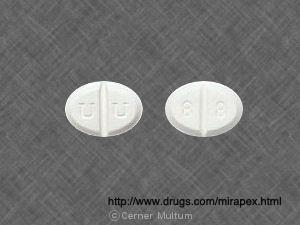Mirapex Lawsuit
A Brief Guide to Filing a Mirapex Lawsuit:
What is Mirapex?
Mirapex, which is the brand name of Pramipexole, is administered to treat the symptoms of Parkinson’s disease---a medical disorder of the nervous system that causes difficulties with muscle control, balance and movement. Mirapex, in addition to this application, is also used to treat restless legs syndrome. Mirapex belongs to a class of medications called dopamine agonists; it is effective by acting in place of dopamine, a substance in the brain that aids in movement control.
Mirapex Side Effects:
Mirapex side effects may present themselves regardless of dosage strength or adherence to intake instructions. Please tell your doctor if the following Mirapex side effects are severe or persistent:
Common Mirapex side effects include: nausea; abnormal body motions and movements; dizziness; drowsiness; difficulty falling or staying asleep; difficulty thinking or remembering; confusion; abnormal dreams or thoughts; heartburn; diarrhea; loss of appetite; dry mouth; joint pain; difficulty urinating; decreased sexual interest; swelling of the hands, arms, feet, ankles or lower legs.
Some Mirapex side effects are classified as severe; these reactions require immediate medical attention. Please contact your doctor if you experience the following Mirapex side effects:
Serious Mirapex side effects include: hallucinations; chest pain; muscle stiffness; muscle weakness; muscle tenderness; red or dark-colored urine; shortness of breath; changes in vision
Some patients taking Mirapex also developed gambling problems, overeating problems and an increased interest in sex. That being said, the FDA declares a lack of information to affirm the link between these addictions and Mirapex use.
Mirapex Lawsuits and the FDA:
Since its approval in 1997, there has been a steady increase of Mirapex lawsuits, filed by patients experiencing some of the aforementioned side effects. As stated above, multiple studies have established a link between treatment with the medication and the loss of impulse control, leading to behaviors including compulsive gambling.
Due to the volume of Mirapex lawsuits, litigation efforts are now handled under the process of multidistrict litigation--a procedure where a federal court hears multiple cases concerning the same complaint. In 2007, the federal district court of Minnesota was appointed to oversee Mirapex lawsuits.
Several studies have demonstrated that Mirapex side effects conclusively included a lack of impulse control. A 2005 review of FDA reports of adverse effects found that 39 users of the drug had reported the development of pathological gambling habits. A 2009 Mayo Clinic provided further justification for people who wished to file a Mirapex lawsuit. While none of the patients taking the medication Carbidopa developed such symptoms, seven users of the medication developed these Mirapex side effects.
The first Mirapex lawsuit in the multidistrict litigation was heard in 2008. The plaintiff said he began taking the medication but did not develop compulsive gambling habits until 2002. As part of his Mirapex lawsuit, the plaintiff noted that his gambling continued for three months after he stopped treatment in November 2005. He was awarded a Mirapex settlement of $8.2 million in June 2008.
The success of this Mirapex lawsuit was due to several factors. Most importantly, while seeking a Mirapex settlement, the plaintiff's lawyers pointed to studies and FDA reports regarding gambling behaviors. Their Mirapex lawsuit argued that these studies should have spurred the drug's manufacturers to conduct tests to investigate this risk. Furthermore, the complaint seeking a Mirapex settlement noted that the company did not provide any warning label information of this possible development until March 2005. This justified the plaintiff in arguing the drug information provided was not sufficient for patients to make an informed decision about treatment.
The results of subsequent suits seeking a Mirapex settlement have not been made public. Litigation regarding Mirapex side effects is still being handled by the same federal court. It is unclear when every suit seeking a Mirapex settlement will be concluded. However, the statute of limitations to pursue compensation for Mirapex side effects that occurred before March 2005 will have expired for nearly all plaintiffs. Therefore, seeking a Mirapex settlement for such claims is no longer possible.
Recent studies have suggested that Mirapex side effects concerning the risk of cardiac failure are greater than suggested by the manufacturer. It may be possible to seek a Mirapex settlement if you have experienced a heart attack or other adverse effect related to such treatment. However, no litigation concerning such Mirapex side effects is known to have been successful at present.
Sources:
1. The United States National Library of Medicine “Pramipexole” retrieved from:
http://www.ncbi.nlm.nih.gov/pubmedhealth/PMH0001004/
2. http://www.accessdata.fda.gov/drugsatfda_docs/label/2008/020667s014s017s018lbl.pdf
3. http://www.fda.gov/Safety/MedWatch/SafetyInformation/
SafetyAlertsforHumanMedicalProducts/ucm320054.html
4. http://www.fda.gov/Safety/MedWatch/SafetyInformation/ucm314778.html
Related Topics
- Airsoft Gun
- Levothroid Lawsuit
- Claritin Lawsuit
- Paxil Lawsuit
- Lupron Lawsuit
- Zoladex Lawsuit
- Tequin Lawsuit
- Amitiza Lawsuit
- Risperdal Lawsuit
- Flomax Lawsuit
